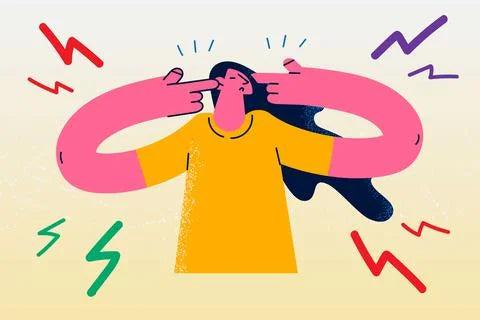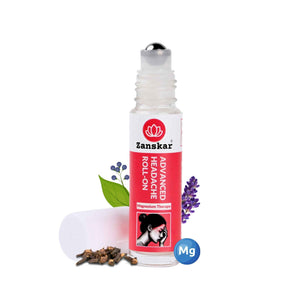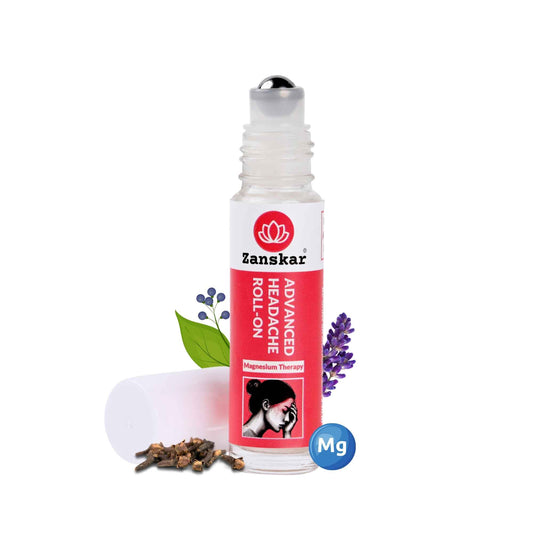
Tips to Managing Chronic Headaches and Migraines

Rama, a Zanskar Health participant, was helping her kids prepare for her exams in an already gruelling schedule of taking care of her household, when her headaches started. With more stress she also developed muscle tension in her neck, struggled with sleep, and found herself sitting in the same position for hours at a time. She knew her stress was taking a toll on her, but she felt stuck in a vicious cycle and didn’t know how to break free.
Whether you relate to Rama or just experience occasional headaches, they can be disruptive to your day. In this article we’ll discuss some general information about headaches and what you can do to address them.
Why Do I Get Headaches?
There are many different types of headaches such as tension, sinus, or migraine headaches. And there are many factors that contribute to headaches. Some factors may be related to short-term circumstances, like:
• Clenching your jaw
• Sitting or standing habits
• Muscle tension or weakness (particularly in your neck)
• Lack of movement during the day
• A rapid increase in physical activity
• Poor sleep or fatigue
• Acute stress
• A head or neck injury
Headaches can also be influenced by ongoing factors such as obesity, smoking, genetics, and persistent stress or fatigue. Regardless of its type, every single headache you experience is unique because headaches are always due to a combination of different factors.
What Can I Do to Make My Headaches Go Away?
Unfortunately, there’s no foolproof way to make a headache go away. Some factors that contribute to headaches are outside of your control. But there is always something you can do to help yourself get through a headache.
When you need quick relief, you can try techniques such as:
- Targeting tight muscles in your upper back and neck with self-massage
- Using a hot or cold pack on your head or neck
- Limiting bright lights by dimming lights inside, closing the curtains, or wearing sunglasses outside
- Using over-the-counter medication sparingly (you should always talk to your doctor before taking a new medication)
If you are prone to recurring headaches and want to take proactive measures to prevent them, certain healthy habits such as the following can help:
- Walking or getting exercise every day
- Staying well hydrated
- Adopting a relaxation practice to manage tension and stress
- Limiting alcohol
- Avoiding foods that trigger headaches for you (this can take some trial and error to identify)
- Eating meals on a regular schedule
- Trying your best to get adequate sleep
By addressing the unique factors that contribute to your headaches, you may be able to reduce the intensity, length, or frequency of them. So how do you identify what contributes to your headaches?
Where Do I Start?
It can be hard to know where to start when trying to identify what contributes to your headaches. The following questions may help you take the first step:
• What factors seem to affect your headache? (You could consider foods, movement patterns, screen time, stress, sleep, etc.)
• Of those factors you just identified, which do you feel confident addressing? What factors can you take control of?
• What is the smallest step you can take to get started?
When Zanskar Health participant, Rama, decided to address her headaches, she realized that poor sleep and lack of exercise were major contributors. But the thought of tackling those factors was overwhelming to her. So she started smaller.
First she set recurring reminders on her calendar to take three deep breaths while relaxing her jaw muscles throughout the day. She also performed arm and neck movements every hour at work. And she changed the height of her chair and desk three times a day to give her neck a change in position. Although she continued to experience some headaches, she found they were shorter and less intense. From there, she continued to build consistency and work on more habits in her control.
Almost everyone gets headaches. And although headaches usually aren’t serious, if they do disrupt your activities, work, or personal life, know that you have options. You can’t always prevent a headache, but there’s always something you can do to manage your symptoms and take back control of your day.
Key Takeaways
• Headaches are due to many different factors.
• Some factors that contribute to headaches are easier to take control of than others.
• It helps to identify what might contribute to your headaches (e.g. clenching jaw) and explore small steps to reduce those contributing factors.
Learn More About Zanskar Health
If you have joint or muscle pain that makes it hard to move, Zanskar offers the most advanced full stack pain relief solutions for you.
Now available to purchase, Zanskar® Advanced Pain Healing Cream has a unique formulation of natural ingredients like Arnica, Vitamin B6, MSM and Capsaicin, which is trusted by over 20L+ pain sufferers globally. It provides lasting relief from muscle and joint discomfort that you can feel good about. Get your fix before stocks run out - buy now.
You can also gain access to therapeutic exercises and stretches for your condition by downloading the Zanskar Health physiotherapy mobile app. Additionally, you’ll have a personal care team to guide, support, and tailor our program to you, including behavioral and nutritional coaching.
Download our mobile app here 👉 download and track your exercise streak.
Medical Review: This article is written by Dr Nishtha Mittal (Senior Health Content Editor at Zanskar Health) and has been medically reviewed by Dr Rashi Goel (Senior Physiotherapist at Zanskar Health). This article and its contents are provided for educational and informational purposes only and do not constitute medical advice or professional services specific to you or your medical condition.







